Aristotle University of Thessaloniki:
Introduction and Overview
Aristotle University of Thessaloniki is the largest university in Greece, named after the ancient Greek philosopher and scientist Aristotle. The main campus is located in the center of Thessaloniki, covering an area of about 33.4 hectares, and some educational and administrative facilities are located outside the campus. The language of instruction is Greek, and there are also foreign language courses and courses for international students, such as English, French, German and Italian.
History and Establishment
The university was established in 1925 and is the second oldest institution of higher education in Greece, after the University of Athens. Its development process can be divided into three stages:
The first stage (1926-1950): The development focus is on philosophy, physics and mathematics, law and economics, theology and medical school, etc. In 1950, the only veterinary school in Greece was established.
The second stage (1951-1975): Focus on the development of the School of Engineering.
The third stage (1975-present): Continuously expand and improve various colleges and disciplines. In 1954, the school was renamed Aristotle University of Thessaloniki.
School Strength
Faculty: It has 2,024 academic staff and a large number of special laboratory teaching staff and special technical laboratory staff. The administrative staff includes 400 permanent employees and 528 contract workers.
Academic Research: It has carried out extensive research in many disciplines such as agricultural science, heart and cardiovascular system, chemical engineering, pharmacology and toxicology, with remarkable results. For example, it has unique advantages in Byzantine research and has a special Byzantine Research Center.
International Exchange: It is a member of the European University Alliance, the Balkan University Network, the Black Sea University Network, the Utrecht Network and other organizations. It actively carries out international cooperation and exchanges, and has established cooperative relations with universities and research institutions around the world, providing students with rich international exchange opportunities.
Institutional Nature
Public University.
Educational Philosophy
Focus on cultivating students' comprehensive quality and innovation ability, emphasize the combination of academic research and practical application, encourage students to actively participate in scientific research projects and social practice activities, so as to enhance students' professional skills and ability to solve practical problems, so that students can quickly adapt to social and workplace needs after graduation.
Key laboratories and disciplines
Key laboratories: It has many advanced laboratories, such as seismic stations, university farms, archaeological excavation sites, etc., which provide students with a platform for practice and research.
Key disciplines: Agricultural science, biology and biochemistry, heart and cardiovascular system, chemical engineering, pharmacology and toxicology, physics and other disciplines have a certain influence internationally.
Faculty
The school has a total of 10 colleges, including the School of Theology, the School of Philosophy, the School of Science, the School of Law, Economics and Political Science, the School of Agriculture, the School of Forestry and Natural Environment, the School of Veterinary Medicine, the School of Medicine, the School of Dentistry, the School of Engineering, the School of Fine Arts, the School of Education and other 40 departments.
Ranking
Ranked 530th in the 2024 QS World University Rankings.
Ranked 363rd in the 2023 Global Best University Rankings of "U.S. News & World Report", 152nd in Europe, and 2nd in Greece.
Fees
Tuition fees at Greek public universities are relatively low. Undergraduates generally pay about 1,000-3,000 euros per year for tuition and registration fees, and master's tuition fees are around 2,000-5,000 euros per year. The specific fees may vary depending on the major.
Campus Environment
Architectural Style: The campus has a variety of architectural styles, including ancient historical buildings, modern teaching buildings and scientific research facilities, reflecting the integration of tradition and modernity.
Facilities: The school has complete teaching facilities and living facilities, such as libraries, student clubs, sports centers, dormitories, etc., which provide students with good learning and living conditions. In addition, there are special facilities such as archaeological excavation sites, Byzantine Research Centers, and Mount Olympus Meteorological Stations, which enrich students' learning and research resources.
-
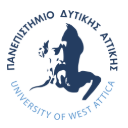
University of West Attica
-

Technical University of Crete
-

International Hellenic University
-
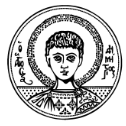
Aristotle University of Thessaloniki
-
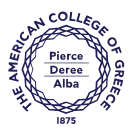
The American College of Greece
-
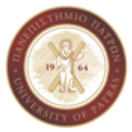
University of Patras
-
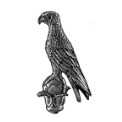
University of Ioannina
-

Democritus University of Thrace
-

Hellenic Open University
-
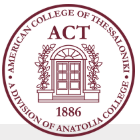
American College of Thessaloniki
-

Mesoamerican University
-

Istmo University
-

Mariano Galvez University of Guatemala
-

Regional University of Guatemala
-

Galileo University
-

Francisco Marroquín University
-

Rafael Landívar University
-

University of the Valley of Guatemala
-

University of San Carlos of Guatemala
-

Technological Institute of Tlaxcala Plateau
-

Golfo University
-

Technological University of South Sonora
-

Technological University of Huejotzingo
-

Tizimín Institute of Technology
-

Chilpancingo Institute of Technology
